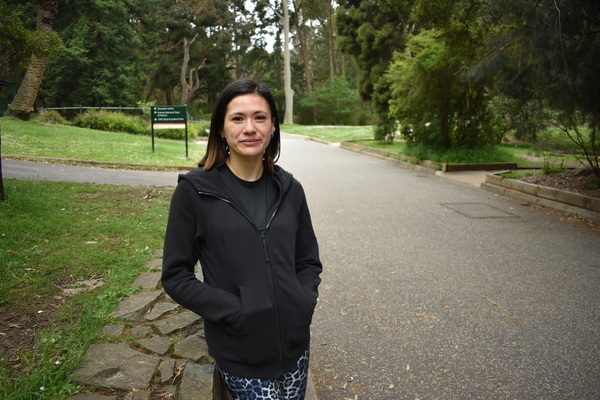By Romy Stephens
After numerous years battling mental illness, Sarah Phillips has completely turned her life around.
And she has exercise to thank.
On 17 November the Lilydale local will show body dysmorphic disorder (BDD) who’s boss, by taking on the Eureka Stair Climb – the southern hemisphere’s highest stair climb.
As well as participating in the stair climb she is also raising funds for the Fred Hollows Foundation.
Sarah first started experiencing BDD in her early 20s.
“I would think there was something wrong with me because of the way I looked,” she said.
“I’d often tell myself that my life would be a lot better if I looked a different way.”
BDD is a mental illness characterised by constant worrying over a perceived or slight defect in appearance.
“Most people will have one or two things that they fixate on and it’s usually either imaginary or just blown out of proportion,” Sarah said.
“I would be doing things like getting out of bed every half an hour to check myself in the mirror because I wasn’t sure what I looked like, I just had to check.
“Even things like wearing clothes, going shopping, going to parties, talking to people, looking at people, you don’t believe you’re worthy of that.”
After years of trying different things to overcome the disorder – such as trials, one-on-one therapy and group therapy – her mental health hit rock bottom and she decided to admit herself to a psychiatric hospital.
It was here she was introduced to exercise.
“They actually gave you the option of going to the gym every day so I would do that,” she said.
“Once I got out of the hospital, I signed up for a gym which accidentally turned out to be a pilates studio.
“I just got really into it. It became almost my escape from work, my escape from technology, just time for me.
“I got this appreciation for my body that it wasn’t really about what it looked like, it could actually do some really amazing stuff if I let it.”
Now, Sarah aims to keep active by doing trial runs and training at the 1000 steps in Ferntree Gully.
Since leaving the hospital she has completed the Kokoda Track and is preparing to conquer Mount Everest base camp in December.
As much as she has improved her physical health, it’s her mental health that she said has improved most drastically.
She encouraged anyone suffering with BDD to be kind to themselves and continue trying different things.
“My biggest advice is just to be compassionate with yourself and to not be upset with yourself,” she said.
“When you’re ready to, just take the next step.
“Shift your energy somewhere else, try something different and stick to it for as long as you can.”
To donate to Sarah for her Eureka Stair Climb visit www.eurekastairclimb.org/fundraisers/sarahphillips/eureka-stair-climb.
For help with body dysmorphic disorder visit your local GP, contact the Australian Psychological Society 1800 333 497 or call Lifeline 13 11 14.







